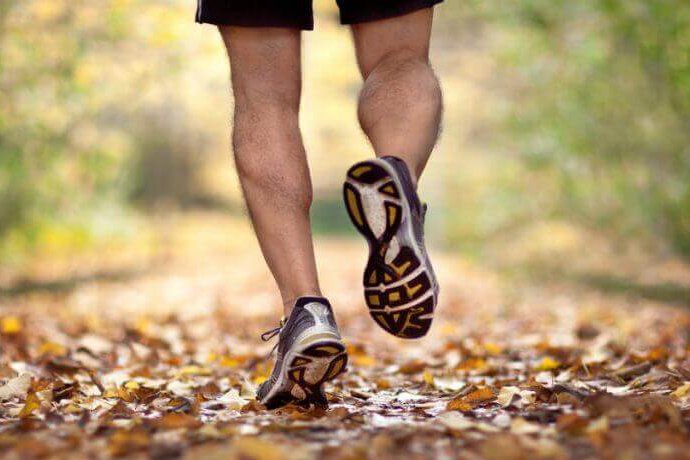After months of training, race day is finally here. You’ve put so much time and effort into your training, the last thing you want is to be unhappy with your performance when it matters most. To avoid being unhappy with your performance, you must know what to eat before a 10K race and what the right foods are. So if you’re still wondering what to eat before running a 10k race and what the right foods are, then this guide is for you. Also, learn about the Marathon training diet.
Let’s explore!
What To Eat Before Running a 10K Training Race?
If you are training for your 10K race, your diet will play a pivotal role in helping you get the best out of your training to perform at your best on race day.
For any training runs where you are looking to run with a performance focus, so at a fast pace that you want to maintain for as long as possible, it is better to have carbohydrates in the meals before the session, as these will fuel those higher-intensity sessions. For example, having a good-sized bowl of porridge 2 hours before would be ideal if you run after breakfast. On the other hand, for any lower intensity, recovery-based runs, where performance is not the focus, you would benefit more from doing these with fewer carbohydrates before them, or perhaps any food at all. The best time to do this is in a fasted state first thing in the morning.
How much do I need to eat before a 10k?
A 10K is considered a shorter race, so you do not need a large carb-load the day before. Up to 6g/kg body mass of carbohydrates, the day before will be more than sufficient to maximise performance for a 10k race. A well-practised pre-race meal is also essential, which should be high in carbohydrates that sit well, and is not too high in fat or protein, as this can make you sluggish and bloated. Including a small amount of healthy fats in your meal can support muscle and brain function and energy; however, it’s important to prioritise a higher carbohydrate and lean protein-based meal to fuel you more effectively without any undesired gut issues.
Nutrition is fundamental in maximising performance and should never be neglected. In fact, it should be prioritised just like your training. What you eat and drink before and during a race should be practised extensively in training prior to the event, so your body is comfortable with any nutritional strategies. Turning up on race day with a stomach full of food you’re not used to is likely to hinder performance.
Nutrition should not be overcomplicated, keep it simple with a well-structured plan that prioritises a food-first approach. Here are a few tips on how to plan your nutrition and choose the best food to eat before a race so you’re fuelled and ready to run a 10K race.
What to Eat Before a 10K Race
Carbohydrates fuel performance, but the body only has a limited supply and is stored in the muscles as glycogen. Carbohydrate loading is a common strategy in endurance events, and for a 10K race, sufficient glycogen stores can be attained in the 24 hours before. Knowing what to eat the day before a 10K will help you be in your best shape during the race day. Increase dietary carbohydrates with each meal the day before along with ample protein, and reduce total fat intake to allow for the increased quantity of carbohydrates to avoid unwanted excessive calorie intake.
Gastrointestinal distress (GI) is very common in endurance athletes, and this can occur by eating too many foods that are not easily digestible. Focus on carbohydrates that are low in fibre and have a moderate to a high glycaemic index to avoid feelings of bloating, flatulence, stomach pains/cramps, etc. Too much fructose (fruit sugar), protein and fat before exercise and dehydration may also cause digestive discomfort.
Avoiding gluten has become a popular fad/trend in many people of late who claim this to be healthier. Unless you suffer from coeliac disease, an autoimmune condition caused by a reaction to gluten, there is no need to eliminate gluten from your diet. Research has shown there to be no performance-enhancing effects of eating a gluten-free diet in those without gluten/wheat intolerances. However, if you have experimented with different foods and found that a gluten-free diet reduces feelings of GI distress and enhances your performance, then go for it.
Hydration is also extremely important for performance. When we exercise, the body cools itself by sweating. Starting exercise in a dehydrated state means your heart has to work harder already to pump blood around the body, so you’re going to fatigue quicker. Dehydration of just a 2% reduction in body weight can impair the performance, so make sure you turn up to the race well-hydrated by drinking plenty of water. You can check how hydrated you are simply from the colour of your urine – the clearer, the better! Hydration also supports glycogen synthesis as water is stored in the muscles, so don’t worry if you notice you’re a little heavier the day before the competition!
Also read: Hydration Testing for Athletes.
What to Eat Before a Run?
Your pre-10 K meal will be down to your preferences. If you can’t stomach much food, a high carbohydrate light snack (e.g. cereal bar, flapjack) might be better, along with a carbohydrate drink (e.g. fruit juice) to give you much-needed energy before your run. Options for what to eat the morning of a 10k include:
- Porridge with tsp. cinnamon, banana & honey
- Muesli, Weetabix, or other preferred cereals
- Dried/fresh fruit and low-fat yoghurt
- Poached eggs on toast
- Bagel/toast with ham or honey/banana/peanut butter
- Fruit juices
- Smoothies
If you struggle to stomach food before a race, then carbohydrates in liquid form may be more suitable. A smoothie, flavoured milk or carbohydrate supplements may be beneficial, e.g. sports drinks/gels.
Pre-race Hydration
You need to have enough stored energy in your body to run a 10k race, for which you need to fuel your body the evening and morning before the event. As you get closer to starting the race, sip on a carbohydrate-electrolyte sports drink and water to maintain blood sugar & hydration levels. Avoid alcohol at all costs because it can lead to dehydration and deteriorate your performance. Other supplements that may enhance performance and provide an energy boost during the 10k run include caffeine, beetroot juice (dietary nitrates), and sodium bicarbonate (Caution as this may cause symptoms of nausea, gastrointestinal distress, and diarrhoea). Use of any supplements should be practised in training!
Drinking & Eating While Running
A 10K race can typically last anytime between 30-60 minutes, and as endurance events go, this is not very long. So long as you have fuelled properly with adequate carbohydrates before the race, you shouldn’t need to worry about consuming additional carbohydrates during the race. Additionally, a well-planned breakfast is highly recommended on race day to help optimise energy levels for a positive impact on your race performance, as well as enhance your recovery afterwards. Drinking small amounts of water to thirst to replace water lost via sweating is recommended to maintain performance.
Eating After Running
You’ve crossed the line and achieved a personal best…straight to the pub, right? Well, that’s up to you, but having something to help your body recover first is recommended. All the good things you eat before a race will not help you completely recover from the 10K run.
Having 20-25g of whey protein is sufficient to maximally stimulate protein synthesis, together with high-glycaemic index carbohydrates will quickly replenish muscle glycogen stores. This can be as food or drink, but obviously, fluids are vital for rehydration and are more palatable than food after exercise. To fully rehydrate, you should drink fluids containing sodium and other electrolytes to replace lost salts through sweating and help the body retain water.
However, rather than researching through all of the recovery supplements out there, there is a natural nutrition source that you should consider. So before you have a beer, enjoy a pint of milk! Milk is the ultimate recovery drink as it contains natural sugars, protein, and electrolytes. Research clearly demonstrates milk to be better than any sports supplement for replenishing muscle glycogen stores, stimulating protein synthesis, and also for rehydration. Flavoured milk products are equally effective and probably more suitable on the go.
Eating Before, After & During a 10K Race: Take Home Points.
- Increase carbohydrate intake 24 hours leading up to an event
- Focus on easily digestible high-GI, low-fiber foods with ample protein and reduce fat intake
- Hydrate well the day and morning before a race
- The pre-race meal should contain sufficient carbohydrates with moderate protein and to your preference
- Practice any nutritional strategies prior to the competition so you’re used to it
- Additional carbohydrates are not needed during a 10K race, just drink water to thirst
- Maximise recovery with a pint of milk or milk-based product
- Do what works for you and keep it simple
Want to further discuss your goals, plan your best diet, and get the right services? Get in touch to discuss more.
FAQs
What should I do the morning of a 10k?
On the morning of a 10k, make sure to eat a carbohydrate-based breakfast, including things like porridge or cereals, bread & fruit juices, 2-3 hours before the race. It’s also key to hydrate well in the hours before by drinking plenty of water and the option to include electrolytes.
What is the best thing to eat right before a run?
You shouldn’t be looking to eat anything just before a run, especially before a race as this will cause gut issues. If you’re needing something quick before a training run, a light snack option could be a cereal bar, banana or soreen loaf.
Is it best to run on an empty stomach?
Lower-intensity training runs can be done on an empty stomach but any runs where performance is the focus must be well fuelled to get the most out of the session and aid recovery.
What should runners not eat before a run?
Runners should avoid alcohol, heavily processed foods, red meats, spicy foods, large amounts of fibre and ideally not having carbonated drinks.
Do I need to drink water during a 10k?
You do not need to drink water during a 10k as typical finish times will be anywhere between 30-70 minutes. Hydrate well before the run to prevent excessive feelings of dehydration and the need to drink during.
Do I need to carb load for a 10k?
Carbohydrate loading is only needed before a 10k race, of which, this is only a moderate amount the day before i.e. 6g/kg body mass of carbohydrates.
Can I run 10k without training?
You can, but don’t expect to get a PB…






